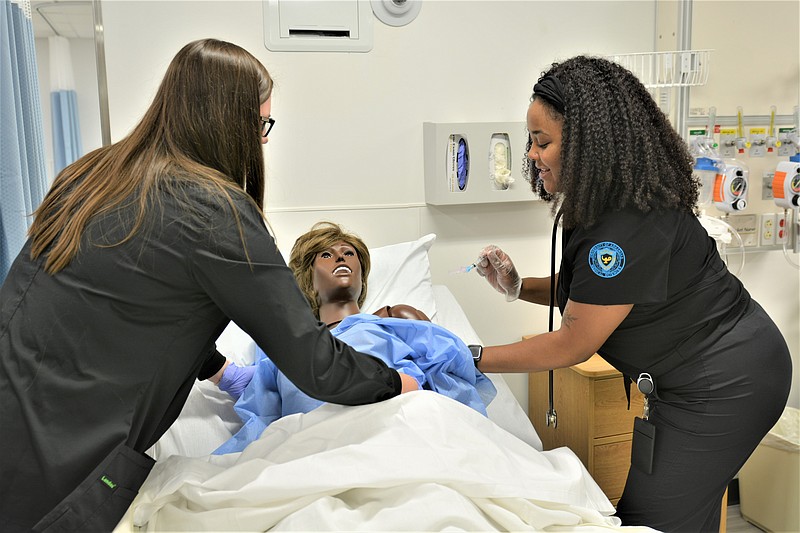FAYETTEVILLE -- A new simulation center and accelerated program will help the University of Arkansas for Medical Sciences remedy a shortage of registered nurses in the state, officials say.
"There is a critical need to educate additional registered nurses to address current and future nursing workforce shortages," said Patricia Cowan, dean and professor of the UAMS College of Nursing. "Challenges in recruiting and retaining nurses in all areas of hospital care have intensified since the onset of the covid-19 pandemic. Even after resolution of the pandemic, the shortage of RNs regionally and in Arkansas will intensify in the coming years."
By 2025, the United States may have a shortage of between 200,000 to 450,000 registered nurses, according to management consulting firm McKinsey & Company. To meet demand, the number of new graduates entering and staying in the nursing workforce would have to double every year for the next three years, a May article by the firm states.
Adapting clinical education to include shorter programs and simulation-based learning activities may provide opportunities to help address the issue by attracting more students and giving students additional practice, according to the firm.
Simulation training that gives students hands-on experience in a controlled environment is an important part of nursing education, according to Cowan.
"Having up-to-date technology, physical space and equipment is essential to creating this real-world experience," she said.
A new 3,400-square-foot simulation center, the first of its kind at the UAMS Northwest campus, will eventually be used by all UAMS students in Fayetteville to supplement classroom learning and clinical settings, according to a news release.
Jay Gandy, associate provost of the campus, said the facility will be a state-of-the-art training space.
"The simulation center will be used to train the best and brightest future health care professionals right here in Northwest Arkansas -- who will then provide the highest quality of care for the patients they will serve," Gandy said. "Beginners can gain confidence in new skills, and seasoned health care professionals can master the continuously growing array of new technologies."
Features of the center will include 12 patient beds, patient simulator manikins, a fingerprint-activated Pyxis medication access system, control rooms, conference rooms and opportunities for specific skills training and video learning sessions with Little Rock classes, the release states.
"By using advanced technology to imitate real-life medical situations, simulation education acts as a bridge between classroom learning and clinical experience," said Lauren Haggard-Duff, clinical associate professor and director of UAMS' new accelerated bachelor of science in nursing program. "Students can receive advanced training in a setting that allows them to receive real-time feedback from their instructors and standardized patients."
UAMS has developed similar simulation centers at its Little Rock campus, according to the release.
The Fayetteville center is already being used by the first class of students in the 15-month accelerated nursing program, designed to quickly move students from outside the profession into nursing, according to the release.
Twenty-four students started the program in June with plans to graduate in August 2023.
Over the next decade, the new program is expected to add hundreds of nurses to the workforce, Cowan said.
The program is open to applicants with bachelor's or higher degrees in any field and prerequisite education in health sciences such as anatomy, physiology, chemistry and microbiology, the release states.

